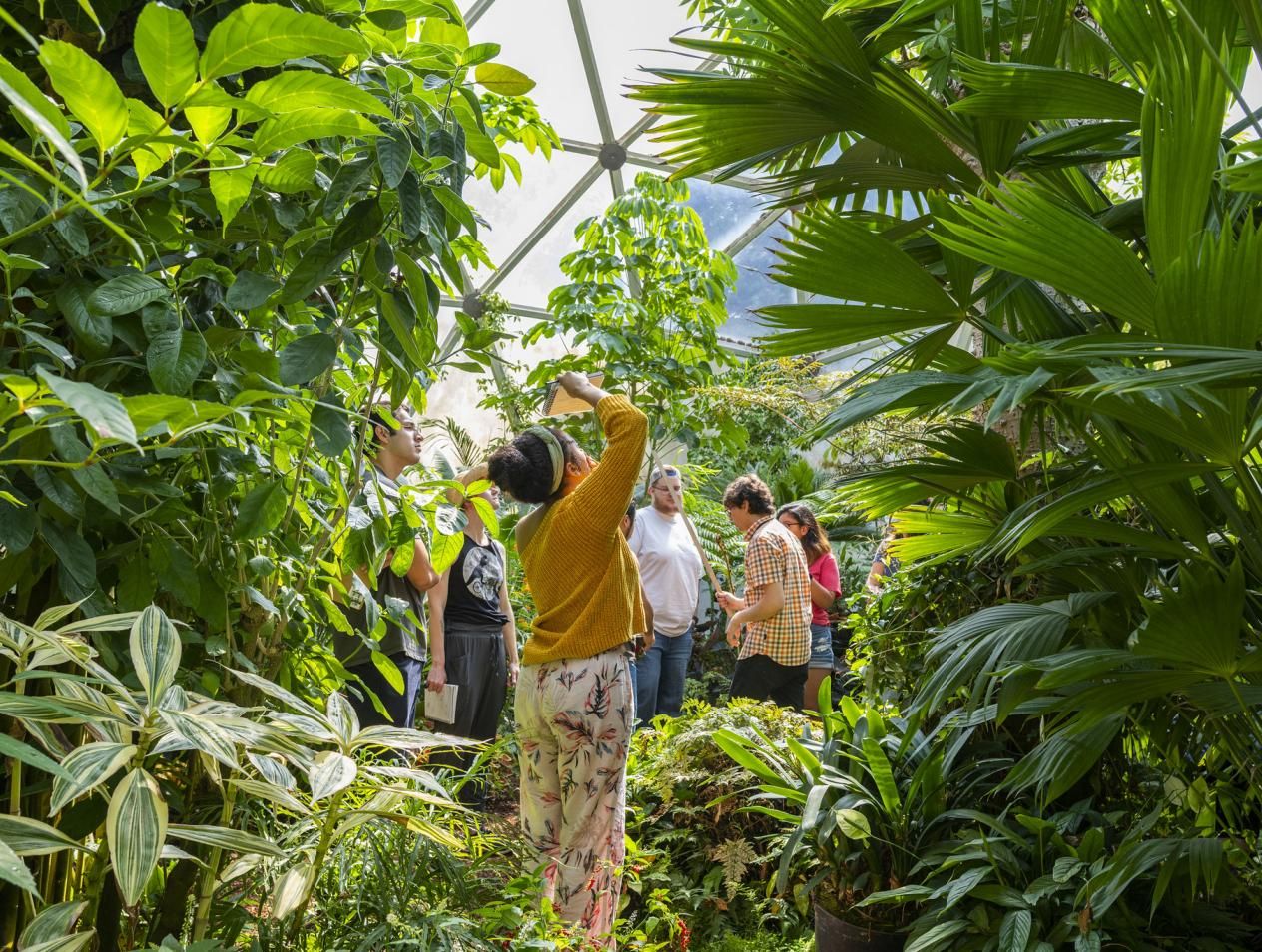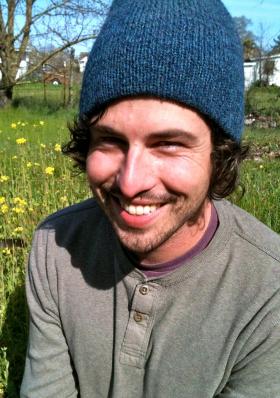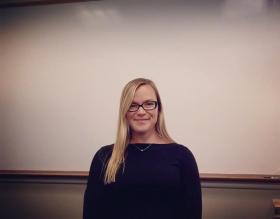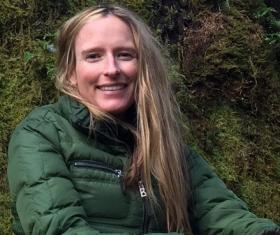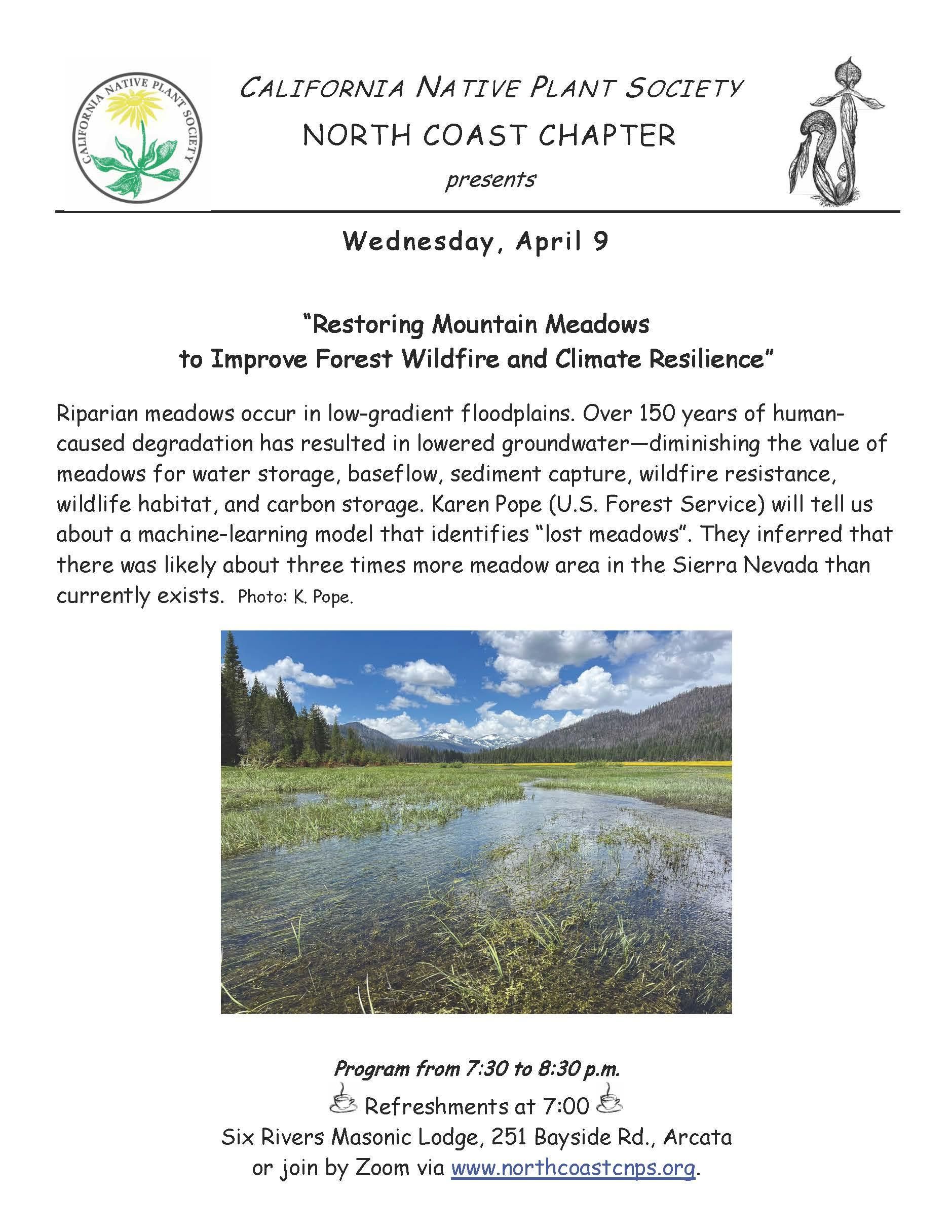Breadcrumb
Department of Biological Sciences
Ignite your passion for biology at Cal Poly Humboldt.
With our ecologically diverse landscape, state-of-the-art research facilities and faculty dedicated to hands-on learning, Humboldt is the perfect place to jumpstart your scientific future.
Bachelor's Degree Programs
The Department of Biological Sciences offers four major disciplines that explore the intricacies of living organisms from the microscopic to the magnificent. You have the opportunity to double-major using combinations of Biology, Botany, Marine Biology and Zoology degrees. In this case, you must take at least three courses that are unique to the second major and total at least 10 units. The courses must be selected with the student's advisor and approved by the Department Chair.
Biology, B.S.
Learn about organisms and how they function in the natural world. Study general biology, or focus your studies by choosing a concentration in one of five specialty areas: General Biology, Cellular and Molecular Biology, Ecology, Microbiology, or Science Education.
Botany, B.S.
As a botany major, you’ll flourish while studying the biological processes unique to plant life. Students in the botany program are part of a dedicated learning community and have access to the best botanical collections in the CSU system.
Marine Biology, B.S.
Using the nearby Pacific Ocean and North Coast as a living lab, marine biology students gain real-world experience on and in the ocean, beaches, and other local marine habitats studying organisms and ecosystems.
Zoology, B.S.
Study physiology, ecology, anatomy, and classification of animal groups—with opportunities for field research in our diverse local habitats, as well as laboratory experience.
Master's Degree & Pre-Professional Programs
In the Biological Sciences department, you can get a masters in Biology or enter our Pre-Professional programs.
Biology, M.S.
As a Master of Science student in Biological Sciences, you will pursue investigations with an emphasis in the laboratory, forests, marine habitats, or a variety of other settings.
Pre-Professional
If you choose one of our pre-professional health programs—which include pre-medical, pre-dental, and pre-veterinary—you will receive a core education based in biology, chemistry, physics, zoology, and mathematics.
Research Facilities and Collections
At Cal Poly Humboldt, our extensive research facilities and collections set students up for excellence in the biological sciences. Utilizing our ocean-going research vessel, greenhouse, electron microscopes, Vertebrate Museum, and more, you’ll work side by side with other students and faculty to research what you talk about in the classroom, providing real-world, hands-on experience even as an undergraduate student.
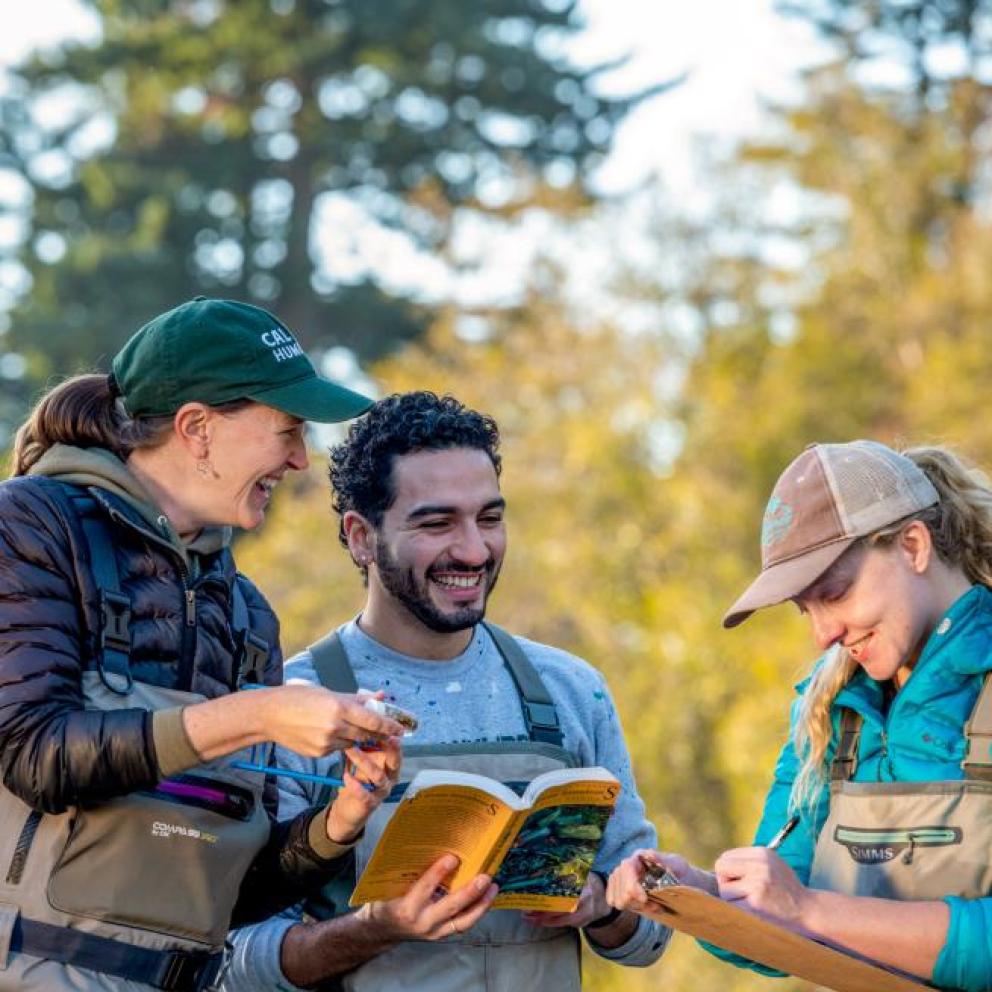
Career Options
- Anatomist
- Developmental Biologist
- Entomologist
- Herpetologist
- Mammalogist
- Museum Curator or Manager
- Naturalist
- Physiologist
- Professor
- Science Educator
- Scientific Illustration
- Scientific Outreach
- Scientific Writing
- Systematist
- Taxonomist
- Veterinarian
- Veterinary Assistant
- Botanist
- Environmental Consultant
- Herbarium Curator
- Horticulturist Naturalist
- Plant Ecologist
- Plant Pathologist
- Plant Physiologist
- Science Librarian
- Technical Writer
- Aquaculturist
- Environmental Consultant
- Fisheries Biologist
- Marine Biologist
- Marine Conservationist
- Marine Ecologist
- Marine Educator
- Marine Engineer
- Marine Geologist
- Marine Mammalogist
- Marine Policy Analyst
- Oceanographer
- Oceanographic Technician
- Remote Sensing Specialist
- Anatomist
- Animal Nutritionist
- Embryologist
- Entomologist
- Health Technician
- Ichthyologist
- Laboratory Technician
- Museum Curator
- Ornithologist
- Pathology Technician
- Science Librarian
- Technical Writer
- Zoologist
Minors
Featured Alumni - Biology
Featured Alumni - Botany
Achievements
Find out what our students, faculty, and staff are being recognized for.
Catalina Cuellar-Gempeler
Biological Sciences
Professor Catalina Cuellar-Gempeler's BIOL 412 General Microbiology class has published another successful volume of the Humboldt Journal of Microbiology, accessible at https://digitalcommons.humboldt.edu/hjm/. Congratulations to student authors Natalie S. Kozlowski, Leighanna Jake, Theo P. Murphy, Eve Wendley, Justice Laskowski, Tyler Paredes, Quigley D. Espinola, Scarlet Renner, Curtis Cline, Sophia Lopez-Orenday, Alex Yasumatsu, Mariska M. Kessler, Jocelyn Wolfinger, Destiny S. Alcaraz, Isabella N. Cerrone, Brooke Pirkle, Danielle Williamson, Gianna Vendrell, Chloe Kraft, Ryan A. Solorzano, Justin Paulin, Grayson Prater, Michael Lanier, Noah S. Schuhmann, Andrew McLaughlin, and Julian Barreran.
Ismael Chowdhury & Dana Johnstun
Biological Sciences
Two graduate students from Dr. Sean Craig's lab in Biology have won awards at the International Bryozoology Association (IBA) meeting in Tokyo, Japan! Current student Dana Johnstun won an "outstanding presentation" award, while former student Ismael Chowdhury won a "travel award" to go to the meeting and give 2 presentations. Both students will publish their work in the Conference Proceedings (along with 1 additional former student from Sean Craig's lab, Sheena Stephens-Norton)
Justin Harden
Biological Sciences
Justin Harden, a graduate student in the Chin Lab, has been named a USDA-ARS NextGen Fellow.






